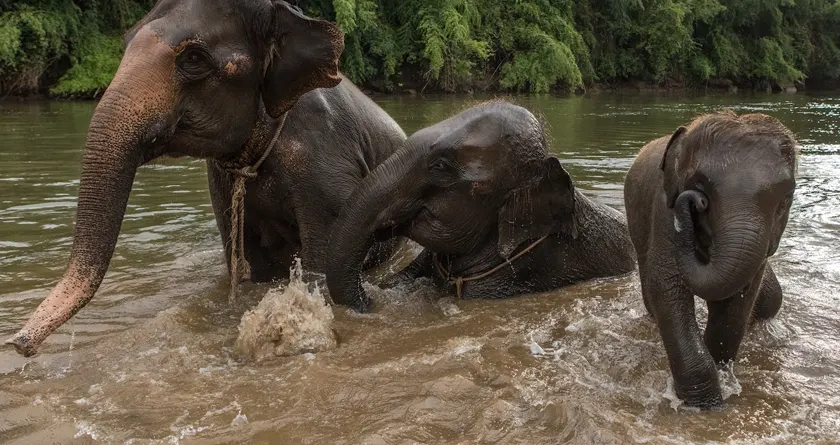
A year without tourism spells disaster for Thailand's captive elephants.
Thailand tourism, get more details.
Thursday, 10th June 2021
“For sale: eleven astute elephants. Sriracha Tiger Zoo in Chon Buri, Thailand, announced in a Facebook ad on May 29 that each animal would cost 3 million baht. That works out to about $96,000 per person.
The zoo earns money from tourists through admission tickets, elephant rides, and animal shows, but with Thailand closed to most foreign visitors (or requiring mandatory quarantine) due to the coronavirus since March 2020, it is facing a financial crisis. On May 28, the zoo said on Facebook about its elephant problem, "at this point, to close the wounds from COVID, we need to sell [them] out."
Also Read: Down in the Jungle: To Love and Protect.
Across the country, the story is similar. In Thailand, approximately 3,800 elephants are kept in captivity, with many of them housed in camps, zoos, and sanctuaries. Some camps rent elephants from individual owners and have had to send the animals and their caretakers, or mahouts, away because they cannot afford the costs of keeping them. Other camps continue to have elephants, but they are struggling to feed and care for them, leaving many isolated and hungry. People are doing everything they can to hang on in the industry.
Edwin Wiek is the founder and director of Wildlife Friends Foundation Thailand, a sanctuary for 850 rescued animals, 29 of which are elephants. Despite losing the majority of its revenue, the foundation has taken in six displaced elephants. “It's almost impossible to run the place sustainably,” Wiek says. “Every time a donation comes in, we rejoice. We advance one day for every thousand dollars.”
Wiek claims that the situation is especially bad in southern Thailand, which is heavily reliant on tourism. “When I go to these temporarily closed camps and look at [the elephants'] physical and mental state, I almost feel like some of them would be better off dead,” he says. “It's difficult to see the shaking heads and aggressive behavior. They're very hungry. I'm really hungry.”
Thailand has long benefited from elephant tourism. Visitors from all over the world pay between $20 and $150 to ride or watch elephants perform tricks. Part of the industry has shifted in recent years to sanctuaries that place elephants in more natural environments, in response to rising demand for humane experiences as awareness grows of harsh training methods and substandard elephant treatment at many traditional camps.
The Newstalkie Bureau
Source
nationalgeographic.com











